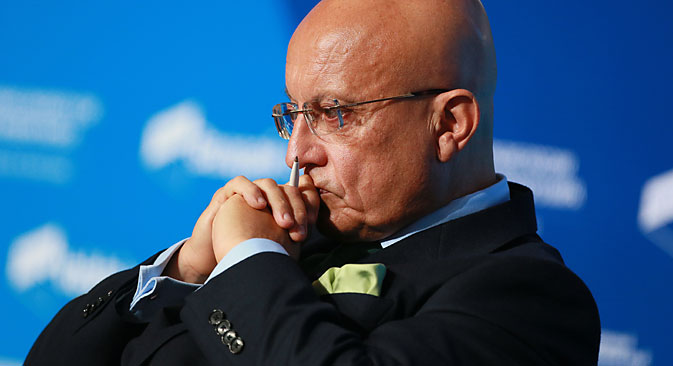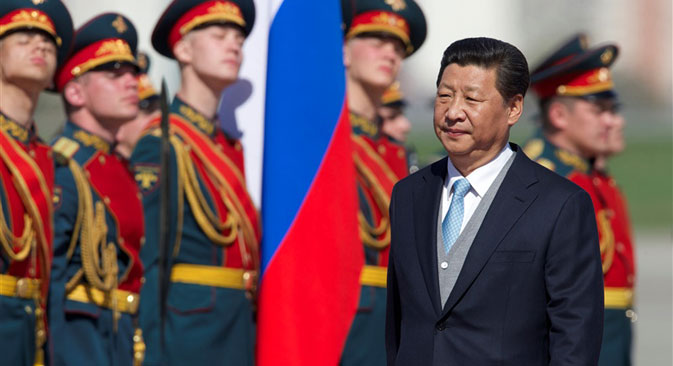China and Russia plan greater Eurasian integration - Expert

Sergei Karaganov. Source: Anton Denisov/RIA Novosti
There was a lot of talk about a new type of partnership with Beijing at a recent conference devoted to Russia-China relations, which was organized by the Russian International Affairs Council in Moscow. Rossiyskaya Gazeta discussed the prospects of Sino-Russian cooperation with political scientist Sergei Karaganov, Dean of the Faculty of World Economics and Politics of the Higher School of Economics.
Rossiyskaya Gazeta: What is the new type of partnership between Russia and China, in your opinion?
Sergei Karaganov: I think that “new” is what has happened recently, when China and Russia agreed on the integration and coordination of two mega projects. That is China's Silk Road Economic Belt and the Eurasian Economic Union, which is led by Russia. Previously, most observers assumed that these two projects would be competing with each other. Now, everything is exactly the opposite. It is very likely that a new area of economic development will be formed in the center of Eurasia that will benefit all, and probably become the center of the new community of Grand Eurasia.
RG: Sometimes experts express concern that Russia could find itself to be a junior partner of China in this project.
SK: Such concerns exist. But I would advise those who express them not to underestimate the capabilities of Russia. Yes, we are economically lagging behind China, but so far, we are equal figures in the global arena. There are two options to be developed in parallel to continue to maintain parity between Russia and China. The first and most important is that Russia must drastically change its economic policy, achieving growth, especially in those sectors where we are really competitive, and direct it to the East. The second direction is that there must be other strong players in the Eurasian project like India, Iran and other countries in the region.
RG: Should Russia take part in the creation of this new financial system together with China?
SK: Absolutely. Of course, we will continue to work in the old system as well, but the emergence of parallel development banks, parallel reserve currencies and parallel payment systems – all this is advantageous to Russia. They extend the scope of Russia’s flexibility and make the country’s policies more autonomous and independent.
RG: There is a lot of talk today about the development of energy cooperation between Russia and China. But how is this cooperation different from what already exists, for instance between China and Saudi Arabia, Iran or African states?
SK: As any responsible country, China, of course, is interested in diversifying external sources of energy supply. This is a perfectly normal and reasonable strategy. As for the differences, there is one and it is very essential. Supplies from Africa or from the Middle East are extremely vulnerable. The Chinese are well aware of this. All these supplies are delivered by the sea, but the sea is now dominated by the United States and will be in the near future. Therefore, there is the theoretical possibility of an interruption of supplies or the threat of interruption. Continental energy supplies do not carry such threats.
RG: China has been actively buying up companies in Western Europe, the United States and in other part of the world. Should we be afraid of this kind of economic expansion?
SK: China has a huge surplus of capital. Now it turns out that these savings are vulnerable. It is possible that sooner or later the United States will go to the devaluation of the dollar to depreciate its own debt, among other things. In this situation, the Chinese are trying to get assets instead of money. This is quite a reasonable philosophy and one should use it to their advantage.
Unfortunately, there is a stereotype left over from the past years in Russia, when we see only danger, but do not want to see the possibilities. The presence of a large neighbor, such as China, will bring, first of all, a tremendous opportunity for Russia.
This interview has been condensed and edited for clarity. First published in Russian by Rossiyskaya Gazeta.
All rights reserved by Rossiyskaya Gazeta.
Subscribe
to our newsletter!
Get the week's best stories straight to your inbox
